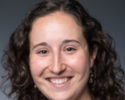Empowering citizen leaders
By Joanna Kenty
June 24, 2021
Students receive hands-on citizen leadership training in a state and local government course
If more community members from more diverse backgrounds had the knowledge and skills to participate directly in government decisions about their towns and cities, offering solutions to problems they’re intimately familiar with, we would all be better off. Community colleges, “democracy’s colleges,” can play a prominent role in training their students to realize the fullness of their power as citizens. This would help to close the “civic empowerment gap” in our country between historically privileged and marginalized groups, and would also increase our country’s problem-solving capacity.
In March, a diverse group of community college students at Cascadia College in Washington provided a powerful example of citizen leadership, delivering outstanding presentations of evidence-based, cost-effective solutions for problems they identified in their own communities. The students received training in Power Civics, newly embedded in their State and Local Government Course taught by Erin Richards.
Richards partnered with The Citizens Campaign, a nonprofit that trains everyday people to get in the game of government decision-making. Students learned a practitioner-informed method of No-Blame Problem Solving, and applied it to local problems: an abandoned gas station, danger to pedestrians in an area without sidewalks and chronic homelessness in Seattle.
Three local government officials were in attendance (a city councilwoman, a county councilman and a former mayor of Seattle) and praised the students’ attention to detail, their persuasive use of evidence, and the practical cost analysis they used to advance their proposals.
Richards’ state and local government students often say they’re glad they took her course because they feel like they learned something useful — after all, to run a small business, provide human services, or work for the city, you need to know something about how local government works. They gained a sense of empowerment. In a post-presentation discussion, all of the students reflected that they now felt comfortable talking to elected officials, and several said they could now see themselves running for local office or serving in leadership roles in their hometowns.
“This is one of my primary goals for students in my state and local government class: to realize that elected officials are normal people, just like they are, and that they, even as students, are capable of presenting ideas and information that elected officials can act on,” said Richards. “Seeing the students embrace the challenge of presenting a practical solution to current and former elected officials and doing so incredibly well reminded me why I do what I do.”



